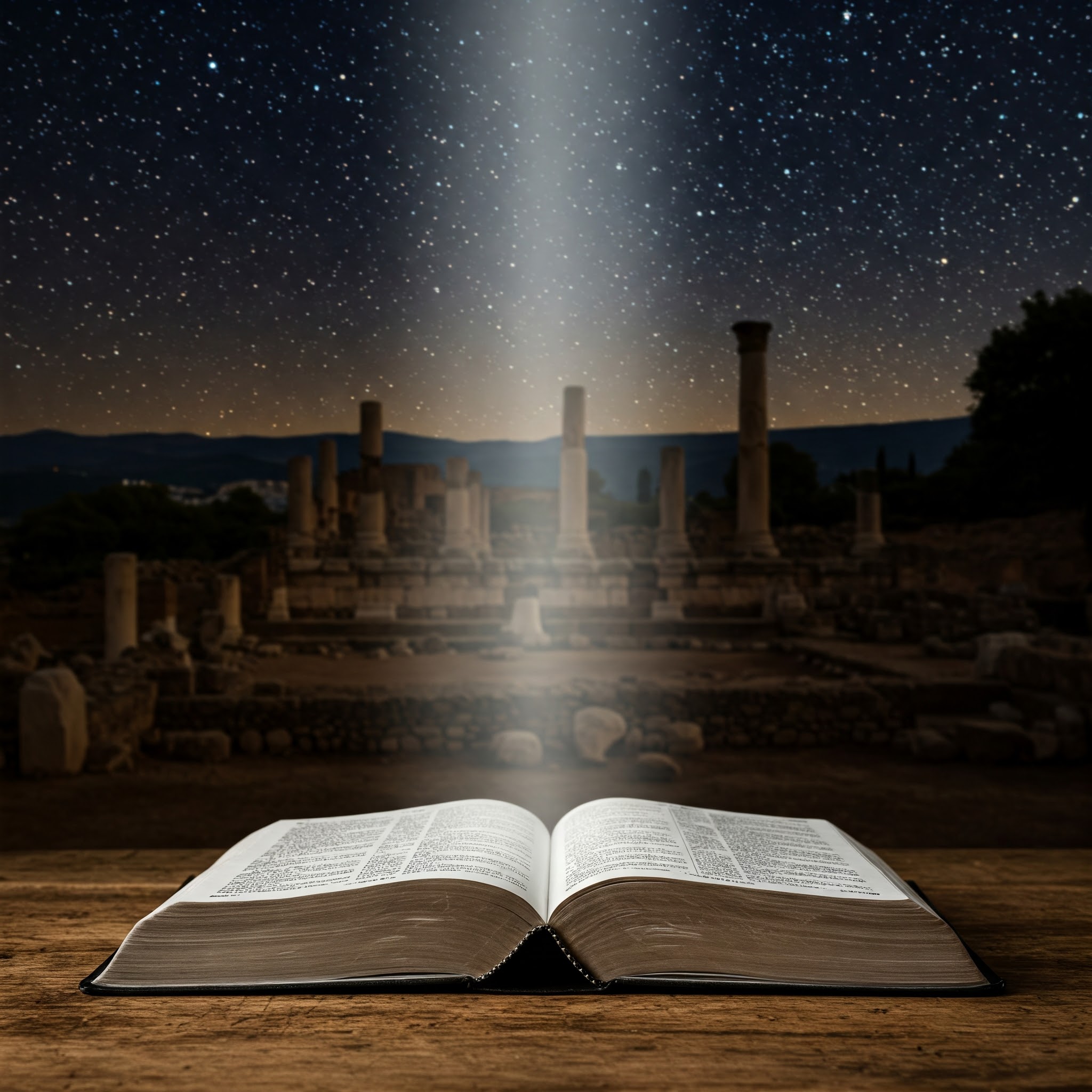What’s the Best Evidence the Bible Is True?
In our age of rapid information and shifting truths, many wonder about the Bible’s reliability. Is it truly God’s inspired word, or simply a collection of ancient stories and myths? Did Jesus Christ, the central figure of Christianity, truly walk this earth as God incarnate? These are questions that have perplexed and intrigued humanity for centuries.
For Christians, the Bible stands as the foundation of their faith. Authored by more than 40 individuals across a span of 1,500 years, it presents a unique tapestry of history, poetry, prophecy, and wisdom. But how can we be sure that this diverse collection of writings is divinely inspired and worthy of our trust? Can we truly know if the Bible’s claims about Jesus are accurate?
The good news is that faith in the Bible doesn’t require blind acceptance. We can investigate its truthfulness through careful examination of historical evidence and internal consistency. In this exploration, we’ll focus on three key pillars of support for the Bible’s authenticity: Manuscripts, Archaeology, and Prophecies – the “MAP” of biblical reliability.
Manuscripts: A Testament to Preservation
The Bible boasts a more extensive and well-preserved manuscript history than any other ancient document. The Institute for Creation Research reports that “there are some 25,000 early manuscripts in existence, almost 6,000 of which (many being only recognizable fragments) are Greek texts and the others being early translations of the Greek New Testament.” This abundance of evidence provides a robust foundation for understanding the original text.
The early Christian community, the Church, diligently copied and transmitted Scripture, ensuring its preservation across generations. While minor variations inevitably arose, the overall message remained consistent. God, in His providence, raised up individuals and communities throughout history to safeguard the accuracy of His word. The Masoretic text, a meticulous compilation from around the sixth century AD, stands as a testament to this dedicated effort. It draws upon earlier sources like the Samaritan Pentateuch, the Septuagint Greek translation, the Dead Sea Scrolls, and the Latin Vulgate, providing a comprehensive and reliable foundation for our modern understanding of the Bible.
The Dead Sea Scrolls, discovered in 1947, offer a remarkable glimpse into the past. These ancient manuscripts, dating back to around 0 AD, provide a striking confirmation of the Bible’s accuracy. Among the scrolls, a nearly complete copy of the book of Isaiah was found, demonstrating remarkable consistency with the biblical text we possess today.
Archaeology: Unearthing Historical Truths
Biblical archaeology continues to provide compelling evidence for the historical accuracy of Scripture. The Tel Dan inscription, for example, confirms the Assyrian invasion of the Kingdom of Israel around 722 BC, including a reference to the “House of David,” linking the biblical narrative to historical reality.
Another significant discovery, the Ketef Hinnom scrolls, unearthed by Israeli archaeologist Gabriel Barkay, contains the priestly benediction found in Numbers 6. These silver scrolls, dating back to the seventh century BC, offer the earliest known record of this biblical passage.
These examples highlight the growing body of archaeological evidence that supports the historical veracity of Scripture. As excavations continue, more and more discoveries confirm the biblical narrative, painting a vivid picture of the ancient world in which God’s word unfolded.
Prophecies: A Tapestry of Foretold Events
The Bible is replete with prophecies, divine foretellings of future events. Scholars estimate that the Old Testament contains around 2,500 prophecies, many of which have already been fulfilled with astonishing accuracy. These fulfilled prophecies serve as powerful evidence for the Bible’s divine inspiration.
Consider the prophecies concerning Jesus Christ. Numerous Old Testament passages, written centuries before His birth, accurately predicted His lineage, birthplace, ministry, suffering, and resurrection. The probability of these prophecies being fulfilled by chance is infinitesimally small, defying any explanation other than divine intervention.
While some prophecies remain unfulfilled, particularly those related to end-time events, the sheer volume of fulfilled prophecies provides compelling evidence for the Bible’s reliability. These prophecies serve as a powerful testament to God’s sovereignty and His unwavering commitment to His word.
The Impact of the Gospel
Beyond historical and archaeological evidence, the transformative power of the Gospel stands as a powerful testament to the Bible’s truth. Millions of lives have been radically altered by the message of Jesus Christ, offering hope, healing, and restoration. These personal testimonies, while subjective, cannot be ignored.
Ultimately, the question of the Bible’s truthfulness rests on a personal decision: Who do you believe Jesus is? What impact has His message had on your life and the world around you? These are profound questions that demand honest introspection and a willingness to seek truth.
If you are seeking to deepen your understanding of the Bible and its impact on your life, we encourage you to explore further. Engage in thoughtful discussions with other believers, study Scripture diligently, and allow the Holy Spirit to illuminate your understanding. The journey of faith is a lifelong pursuit, filled with wonder, discovery, and the ever-present grace of God.

